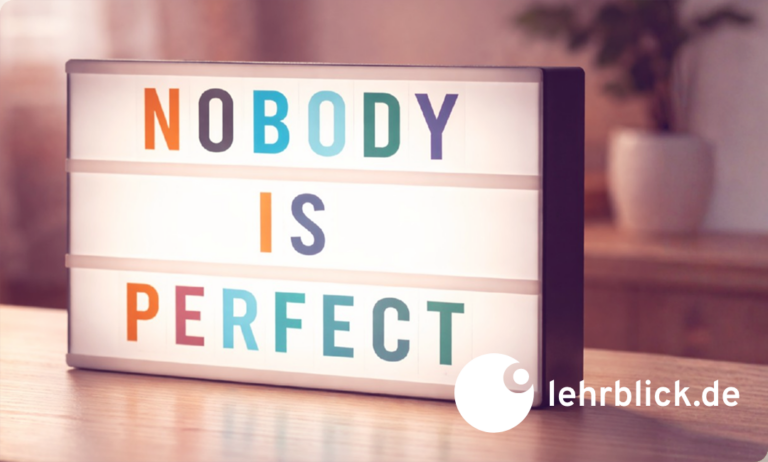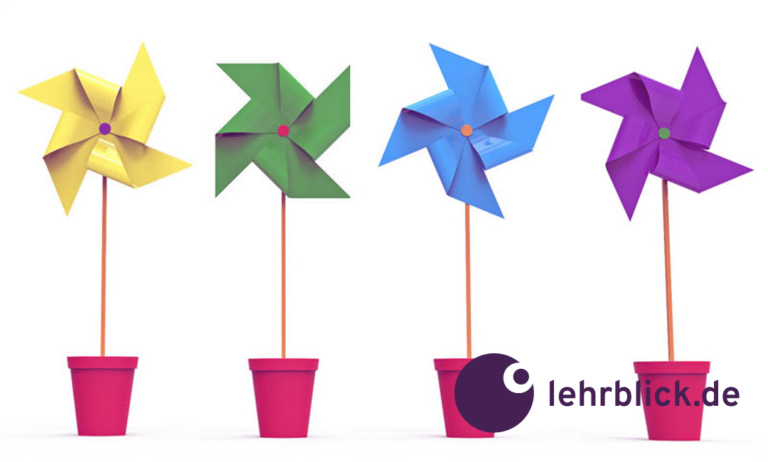Universities are key players in the social transformation towards greater sustainability. Today’s students are the decision-makers of tomorrow and will act as multipliers for sustainable thinking and action in different areas of society. Accordingly, many target agreements between universities and federal states also include anchoring the topic of Education for Sustainable Development (ESD) in teaching (Holst & Singer-Brodowski, 2022).
ESD is an educational concept that aims to empower people to play an active role in shaping a sustainable future (Holst & Singer-Brodowski, 2022). It pursues a holistic approach that takes ecological, social, economic and cultural dimensions and their reciprocal effects into account and places them in a global context (Rieckmann, 2018). This is a complex topic where many teachers ask themselves the question: how can it be integrated into teaching?
Sustainability as a learning outcome?
The question of how education can contribute to sustainable development is based on two complementary approaches (Vare & Scott, 2007; Wals, 2011). The first approach (ESD I) is an instrumental view. ESD I aims to teach concrete sustainable behaviour and show options for action. This means that there is a basic assumption or expertise with regard to which actions are associated with sustainable development (Wals, 2011). The focus here is on the question of what can or must actually be done to make a specific area more sustainable (Vare & Scott, 2007), and can therefore be seen as a thematic approach to the topic of sustainability (Dilger & Siegel, 2023).
Nevertheless, many teachers face the challenge that not all of the content of their courses can be related to the topic of sustainability. The question also arises as to whether it is enough to simply give students information about facts and options for action, or whether it should be more about empowering them to become active shapers of a sustainable future themselves. Skills such as critical thinking about sustainability, recognising conflicting goals and actively participating in shaping transformation processes should therefore be encouraged (Rieckmann, 2018).

In order to meet that challenge, the focus is shifting towards an expanded understanding of education for sustainable development that goes beyond the mere transfer of knowledge and emphasises the active role of learners (ESD II). Sustainable development is understood as an open learning process that can adapt to changing conditions (Wals, 2011). The main focus here is on the question of why we should do something and how we think about sustainability (Vare & Scott, 2007).
Activating methods of skills development particularly lend themselves to integrating ESD II into learning processes (Dilger & Siegel, 2023). Key competencies aspired to include critical, systemic and forward-looking thinking as well as problem-solving skills and the ability to take action (Brundiers et al., 2021; Rieckmann, 2018). These competencies are important because they have an implicit impact on the ability to adapt and innovate (Vare & Scott, 2007). In that way, students not only learn what is currently considered “sustainable” but also how they can develop new sustainable solutions themselves in a world that is rapidly changing.
Universities are places where the ability to reflect critically and shape the future actively come to the fore. A holistic implementation of ESD that combines content-related focal points with the targeted fostering of corresponding skills (Singer-Brodowski & Kminek, 2023) is therefore particularly necessary in this context.
Practical example of the postgraduate study programme “Shaping Sustainability”
Prof. Dr. Mandy Singer-Brodowski, Dr. Ulrike Brok & Prof. Dr. Andreas Roider
With the postgraduate study programme “Shaping Sustainability”, the University of Regensburg is creating a course in which students can deal with the major challenges of sustainability, such as climate change, biodiversity loss and global inequality. They learn that they can be part of the solution themselves.
The postgraduate study programme is geared towards students from all faculties at the University of Regensburg. Its concept is based on the internationally relevant models for key competencies for higher education for sustainable development (Brundiers et al., 2021) and the Bayernzertifikat from the Zentrum Hochschule und Nachhaltigkeit Bayern (BayZeN) (Bavarian certificate from the Bavarian Centre of Higher Education and Sustainability). Accordingly, the postgraduate study programme is intended to foster systemic thinking, the ability to anticipate different futures, dealing with norms and values, strategic action, the ability to cooperate and self-regulation skills.
First, students learn about the fundamental concepts of sustainability, sustainable development and socio-ecological transformation in a basic module. They are then given the opportunity to deepen their knowledge of sustainability issues in their respective disciplines in an advanced module. They can also have sustainability-related courses from their respective subjects credited here. They also have the opportunity to learn about sustainability issues from the perspective of other disciplines beyond the boundaries of their own subjects. Finally, students can carry out specific research or practice-based projects independently in a project module.
Throughout the different modules, students should train their critical thinking in terms of critical emancipatory education for sustainable development (Pettig & Singer-Brodowski, 2025) and expand their abilities to help shape transformation processes towards sustainability in the various fields of action. Regardless of whether the students work in companies, non-governmental organisations, administration or educational practice later on, they learn strategies that enable them to initiate and supervise change processes themselves. Local actors of change will have their say from the outset, providing examples of how the social requirements of transformation are translated and implemented in networks and organisations to achieve sustainability locally. These actors of change can also be practical partners for the student projects.
A formative evaluation is conducted in order to continuously improve the quality of the “Shaping Sustainability” postgraduate study programme from the start. In addition to student competence development (Bremer et al., 2024), the development of sustainability-related knowledge, attitudes and sustainability-related emotions and, last but not least, individual and collective self-efficacy are recorded here. The comparison of the student cohort with a control group at four different points in time (longitudinal section) allows conclusions to be drawn about the effects of the postgraduate study programme. The first results are expected in summer 2026.
And what if lecturers want to incorporate the topic of ESD into their own teaching?
Many lecturers do not learn anything about ESD during their studies and academic careers. If sustainability education is to be more firmly anchored at universities in the future, it is therefore crucial to qualify not only students but also teachers in this area. One successful example of a corresponding continuing education programme was developed at the University of St Gallen: Dr Stefan Siegel and colleagues designed the self-study course “Sustainability Education 101”. This course provides basic knowledge that facilitates a low-threshold introduction to the topic. In addition, a teaching concept that takes the specific circumstances of lecturers’ own courses into account can be developed as part of the course. In the winter semester 2025/2026, the course will also be offered at the Centre for University and Academic Teaching at the University of Regensburg.
Aside from attending workshops or courses, lecturers also have further opportunities to become acquainted with the topic. The DG HochN platform, for example, offers varied inspiration for designing courses. It provides an overview of the topic of ESD and also presents practical examples for teaching. Different projects are also presented. This means that even beginners can integrate elements of ESD into their teaching.
Ruhr University Bochum also shows how skills acquisition in terms of ESD can be implemented in a course. The “Environmental Impact Study in Road Construction” course is offered in the Master’s degree programme in Geography. Students learn methods of ecological spatial analysis and evaluation as well as planning modelling. The students work on these topics in project groups. In addition to subject-specific knowledge and skills, they also acquire social skills that are included in their performance assessment. This approach fosters and combines subject-specific knowledge (ESD I), subject-specific skills such as design skills (ESD II) and interpersonal skills (ESD II) in equal measure.
Conclusion
There is no such thing as THE sustainable education (Singer-Brodowski & Kminek, 2023). Sustainability should not be understood as a rigid set of rules, but as a dynamic learning process in which students develop solutions for a sustainable future themselves. To do this, they not only need knowledge but skills as well. Universities have a special responsibility to enable students to acquire these skills actively. This is precisely where innovative courses come in: they offer students from all disciplines the opportunity to examine sustainability issues from different perspectives and to participate actively in transformation processes.
References
Bremer, A., Lindau, A., & Brok, U. (2024). Entwicklung von Nachhaltigkeitskompetenzen bei Studierenden im Service Learning – ein Erhebungsinstrument zur Selbsteinschätzung. ZEP – Zeitschrift für internationale Bildungsforschung und Entwicklungspädagogik, 47(4), 10–14. https://doi.org/10.31244/zep.2024.04.03
Brundiers, K., Barth, M., Cebrián, G., Cohen, M., Diaz, L., Doucette-Remington, S., Dripps, W., Habron, G., Harré, N., Jarchow, M., Losch, K., Michel, J., Mochizuki, Y., Rieckmann, M., Parnell, R., Walker, P., & Zint, M. (2021). Key competencies in sustainability in higher education—toward an agreed-upon reference framework. Sustainability Science, 16(1), 13–29. https://doi.org/10.1007/s11625-020-00838-2
Dilger, B., & Siegel, S. T. (2023). Sustainability Education in Forschung und Lehre am Institut für Wirtschaftspädagogik.HSG Focus. https://hsgfocus.unisg.ch/1-2023-deglobalisierung/artikel/forschung-sustainbility-education-in-forschung-und-lehre-am-institut-fuer-wirtschaftspaedagogik
Holst, J., & Singer-Brodowski, M. (2022). Nachhaltigkeit & BNE im Hochschulsystem: Stärkung in Gesetzen und Zielvereinbarungen, ungenutzte Potentiale bei Curricula und der Selbstverwaltung. Kurzbericht des Nationalen Monitorings zu Bildung für Nachhaltige Entwicklung (BNE). Institut Futur, Freie Universität Berlin.http://dx.doi.org/10.17169/refubium-35828
Pettig, F., & Singer-Brodowski, M. (2025). Learning in relation to a changing world. Thinking beyond ESD1 and ESD2 towards ESD3. Journal of Education for Sustainable Development. https://doi.org/10.1177/09734082251347383
Rieckmann, M. (2018). Die Bedeutung von Bildung für nachhaltige Entwicklung für das Erreichen der Sustainable Development Goals (SDGs). ZEP – Zeitschrift für internationale Bildungsforschung und Entwicklungspädagogik, 41(2), 4–10. https://doi.org/10.25656/01:18955
Singer-Brodowski, M., & Kminek, H. (2023). Zu den Zielen von Bildung für nachhaltige Entwicklung und dem Stand der Implementierung im deutschen Schulsystem. DDS, 115(2), 94–104. https://doi.org/10.31244/dds.2023.02.03
Vare, P., & Scott, W. (2007). Learning for a change: Exploring the relationship between education and sustainable development. Journal of Education for Sustainable Development, 1(2), 191–198.https://doi.org/10.1177/097340820700100209
Wals, A. E. J. (2011). Learning our way to sustainability. Journal of Education for Sustainable Development, 5(2), 177–186. https://doi.org/10.1177/097340821100500208
Suggestion of citation for this blog post
Hrabetz, B., & Puppe, L. (2025, July 17). Learning as sustainable development: Why universities need to impart more than just knowledge. Lehrblick – ZHW Uni Regensburg. https://doi.org/10.5283/ZHW.20250717.EN

Linda Puppe
Dr. Linda Puppe is a research assistant at the Centre for University and Academic Teaching (ZHW) at the University of Regensburg. She focuses on the topics of innovation in teaching and motivation. Furthermore, she is interested in digital learning environments.

Barbara Hrabetz
Barbara Hrabetz ist wissenschaftliche Mitarbeiterin in der Erziehungswissenschaft an der Universität Regensburg und im Projekt Selvi@ur am Zentrum für Hochschul- und Wissenschaftsdidaktik. Sie promoviert zu sozialen Einflussfaktoren auf nachhaltiges Handeln. Ein weiteres ihrer Interessensgebiete ist Bildung in der Migrationsgesellschaft.
-
This author does not have any more posts.




